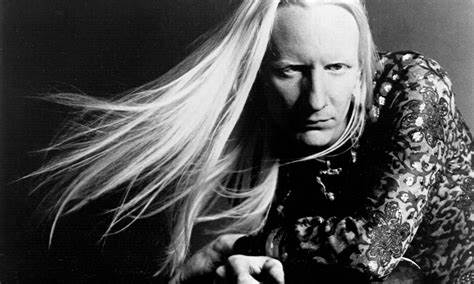Bursting onto the scene in late 1968 the then unknown Johnny Winter joined Mike Bloomfield and Al Kooper as guest guitarist for a show at The Fillmore East. This was the appearance that, according to Kooper, alerted Columbia to Winter, after which the label quickly offered him a contract. This led to the highly successful debut album Johnny Winter quickly followed by Second Winter with the addition of his brother Edgar in the band and several more albums in as many years, all for Columbia.
But by the mid 70s, Winter had grown tired of working in the rock and roll mainstream. A long-term, debilitating addiction to hard narcotics had proved a difficult burden to shift, and by 1975, he decided to go back, musically speaking, to his first musical love – The Blues. And when he signed to the Blue Sky record label he found himself alongside blues legend Muddy Waters and the idea of a hook-up between the two was born.
On the one hand, a Blues giant whose best days seemed behind him, and on the other, a brilliant guitarist who was seeking a reset of his musical values was perhaps something that could prove to be of great potential mutual benefit.
The first recorded results of the Waters/ Winter axis came with the 1977 album, Hard Again. The set was greeted with uniformly stellar reviews, not only for the revitalised Waters, who once again showed that his Mojo was not only working, but in positively late-flowering rude health, but also for Winter, who could concentrate his creative energies as a sideman and producer whilst mapping out his future. Recorded in only three days, the ‘live in the studio’ vibe captured some utterly spine-tingling, vibrant performances, which rolled back the years effortlessly, and showed that the Waters and Winter collaboration was one that delivered big-time.
Using his road-hardened band of Bob ‘Steady Rollin’ Margolin on guitar, Pinetop Perkins on piano, Charles Calmese on bass, Willie ‘Big Eyes’ Smith on drums, plus the great James Cotton on harmonica, and with Waters on vocals and guitar, and Winter singing and playing, the album was a riotous treat. Waters revisited several of his career chestnuts, such as ‘Manish Boy’, in which Winter can be heard roaring encouragement along in the background, ‘I Can’t Be Satisfied’, and ‘I Want To Be Loved’, but there was also new material of a commensurately high standard.
This was no time-keeping coast through Waters’ time-honoured tropes; it was nothing less than a potent statement of renewed intent. Winter had managed to deliver a production sound far more energetic and sympathetic than on Waters’ early seventies recordings for Chess. Hard Again also provided Waters with a return to the album charts, peaking at number 143 in the Billboard top 200, his first such placing since the Fathers and Sons album of 1969. The quality of the album also saw it score a prestigious Grammy Award for Best Ethnic or Traditional Folk Recording in the year of its release.
Waters and Winter continued their productive alliance through two more studio albums – 1978’s I’m Ready, and the final Waters studio album, King Bee (1981), as well as a live album, Muddy ‘Mississippi’ Waters Live (1979). Johnny Winter remained an active recording and performing musician following Waters’ death in April 1983, occupying a place as a seasoned elder statesman of the Blues.
Winter passed away in Zurich, Switzerland, on 16th July 2014, two days after his last performance at the Cahors Blues Festival in France. Although the cause of his death was not officially announced, Winter’s health had been compromised by the years of hard living in the late sixties and early seventies. Rolling Stone magazine writer David Marchese said of him: "Winter was one of the first blues rock guitar virtuosos, releasing a string of popular and fiery albums in the late Sixties and early Seventies, becoming an arena-level concert draw in the process" ... [he] "made an iconic life for himself by playing the blues".
With thanks to Alan Robinson

